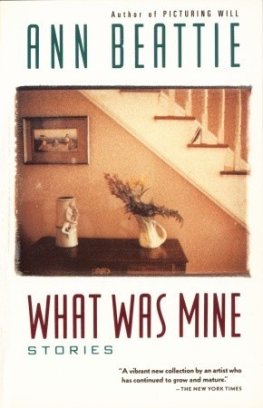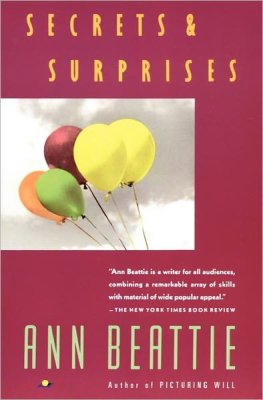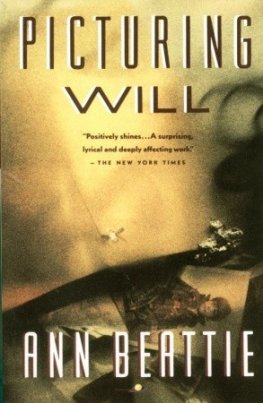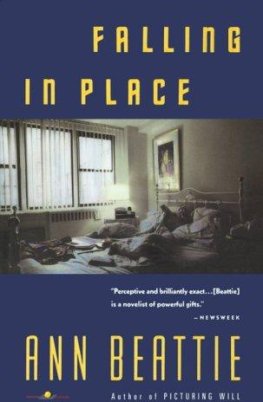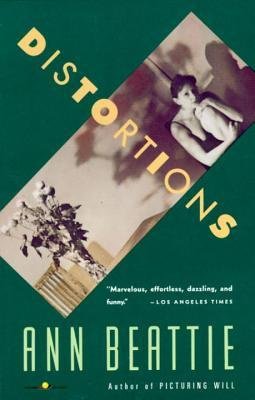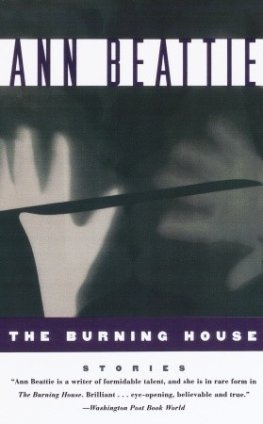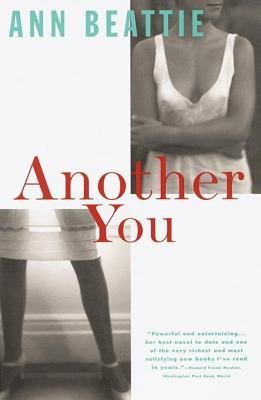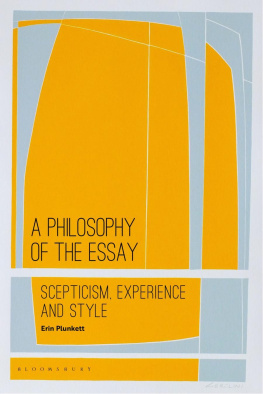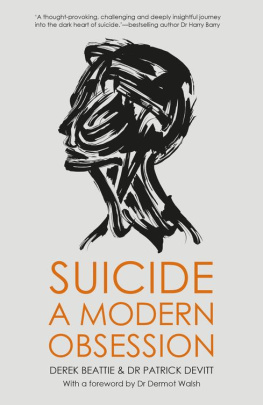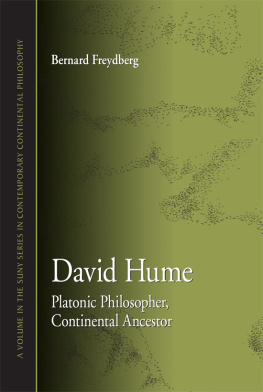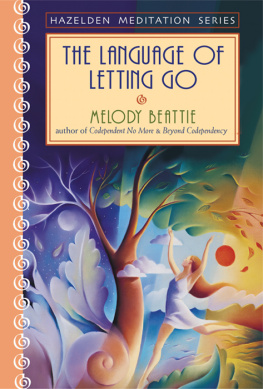Title page
James Beattie
Selected Philosophical Writings
Edited and Introduced by James A. Harris
Copyright page
Copyright James A. Harris, 2004
The moral rights of the author have been asserted.
No part of any contribution may be reproduced in any form without permission, except for the quotation of brief passages in criticism and discussion.
Originally published in the UK by Imprint Academic
PO Box 200, Exeter EX5 5YX, UK
Originally published in the USA by Imprint Academic
Philosophy Documentation Center
PO Box 7147, Charlottesville, VA 22906-7147, USA
2012 digital version by Andrews UK Limited
www.andrewsuk.com
Series Editors Note
The principal purpose of volumes in this series is not to provide scholars with accurate editions, but to make the writings of Scottish philosophers accessible to a new generation of modern readers. In accordance with this purpose, certain changes have been made to the original texts:
- Spelling and punctuation have been modernized.
- In some cases, the selected passages have been given new titles.
- Some original footnotes and references have not been included.
- Some extracts have been shortened from their original length.
- Quotations from Greek have been transliterated, and passages in foreign languages translated, or omitted altogether.
Care has been taken to ensure that in no instance do these amendments truncate the argument or alter the meaning intended by the original author. For readers who want to consult the original texts, full bibliographical details are provided for each extract.
The Library of Scottish Philosophy was launched at the Third International Reid Symposium on Scottish Philosophy in July 2004 with an initial six volumes. Attractively produced and competitively priced, these appeared just fifteen months after the original suggestion of such a series. This remarkable achievement owes a great deal to the work and commitment of the editors of the individual volumes, but it was only possible because of the energy and enthusiasm of the publisher, Keith Sutherland and the outstanding work of Jon M.H Cameron, Editorial and Administrative Assistant to the Centre for the Study of Scottish Philosophy.
Acknowledgements
Grateful acknowledgement is made to the Carnegie Trust for the Universities of Scotland for generous financial support for the Library of Scottish Philosophy in general, and to George Stevenson for a subvention for this volume in particular.
Acknowledgement is also made to the University of Aberdeen Special Libraries and Collections for permission to reproduce the engraving of the Edinburgh Faculty of Advocates from Modern Athens (1829) and Raeburns portrait of Beattie which hangs in the Universitys Chanonry Lodge.
Gordon Graham
Aberdeen, June 2004
Introduction
James Beattie was born in Laurencekirk, Kincardineshire, on 25 October 1735. As was usual in eighteenth-century Scotland, he went to university very young, and began his studies at Marischal College, Aberdeen, when only fourteen years old. This was the start of a life-long association with Marischal, then a separate institution from Kings College. After five years as a schoolmaster in Fordoun, close to his native village, Beattie returned to Aberdeen in 1758 to teach in the citys Grammar School. In 1760 Beattie was appointed professor of moral philosophy and logic at Marischal, a position he occupied for the rest of his career. Also in 1760 he published the first of several books of poetry, the most notable of which was The Minstrel (1771, 1774), often said to anticipate some of the doctrines of Wordsworthian Romanticism. In the early years of his professorship, Beattie relied heavily on the lecture notes of his predecessor Alexander Gerard, but as time passed he stamped his course with his own character, decreasing the amount of pneumatology, or philosophy of mind, and focusing instead upon rhetoric and belles lettres . Many of his philosophical writings began life as lectures given to his students. His greatest success as a philosopher was with An Essay on the Nature and Immutability of Truth , a spirited and sometimes abusive attack on modern scepticism in general, and on David Hume in particular. The Essay appeared in 1770, and was a literary sensation, winning for its author honorary degrees from Kings and Oxford, an audience with King George III, and a royal pension of 200 a year. We all love Beattie, said Dr Johnson in 1772. Beatties personal life was, by contrast, often very unhappy. His wife Mary was afflicted with insanity, forcing the couple eventually to live apart; and his eldest son, James Hay, having been appointed joint professor with his increasingly ill father in 1787, died three years later. Beattie himself died at Aberdeen on 18 August, 1803.
Sir William Forbes notes in his Life and Writings of James Beattie that Dr. Beatties philosophical writings may be properly divided into two classes, Morality and Criticism. This Introduction will show how the present selection from Beatties writings on morals and criticism is lent unity by the importance Beattie attached to his role as educator and improver.
II
A central part of eighteenth-century Scottish intellectual life was the literary or philosophical club. It is difficult, in fact, to overemphasize the importance to the Scottish Enlightenment of these informal, privately-organized, selective, and frequently short-lived societies, which met to discuss every kind of contemporary question, from the most abstract issues in Newtonian science to problems in agriculture and husbandry. In his first years as a professor in Aberdeen, Beattie was a member of the Aberdeen Philosophical Society, sometimes known as the Wise Club, founder members of which had included Thomas Reid, Professor of Moral Philosophy at Kings, George Campbell, Professor of Divinity at Marischal, and John Gregory, Professor of Medicine in the Old Town.
Beatties acute sense of the perniciousness of Humes influence explains the extraordinary violence of some passages in the extracts from the Essay on Truth with which this selection opens (Selections 1-3). [S]cepticism is now the profession of every fashionable inquirer into human nature, Beattie complains (p. 19). By scepticism Beattie means, not a Lockean modesty about the extent of human knowledge, but an extreme form of doubt which recommends that, in view of the uncertainty of all things, we not believe anything at all. He interprets Hume as a proponent of this radical kind of scepticism. Beatties principal aim in the Essay is to show that such scepticism is absurd, and that, being absurd, it is plainly unjustified. We have the right to trust our natural belief in, for example, the existence of an external world of material substances, and the freedom of the will, and should not have our confidence in such beliefs undermined by the sophistry and word-juggling of writers like Hume. But this is not to say that Beattie thinks these basic beliefs can be proven to be true. We are as certain of their truth as it is possible to be of the truth of any principle, but not on the basis of rational argument. Rather, we feel them to be true, using what Beattie calls an instantaneous, instinctive, and irresistible impulse; derived neither from education nor from habit, but from nature; acting independently on our will, whenever its object is presented, according to an established law, and therefore properly called Sense ; and acting in a similar manner upon all, or at least upon a great majority, and therefore properly called Common Sense (p. 32). Beattie, then, is just as much a common sense philosopher as Thomas Reid. Modern philosophy, for Beattie as for Reid, went wrong when Descartes argued that a belief should be rejected unless it can be given decisive justification. The subsequent slide into dangerous absurdity is charted in the excerpt entitled Rise and Progress of Modern Scepticism. Beattie reads Hume in a way that is deeply uncharitable, and sometimes simply obtuse. It is nonsense to suggest that Humes goal as a philosopher was to divest us of our natural beliefs, and Hume, not surprisingly, was made very angry by the Essay on Truth . He is said to have complained that he had not been used like a gentleman. The letter from Beattie to Blacklock included here (Selection 4) gives some insight into the motivation behind the book.
Next page


